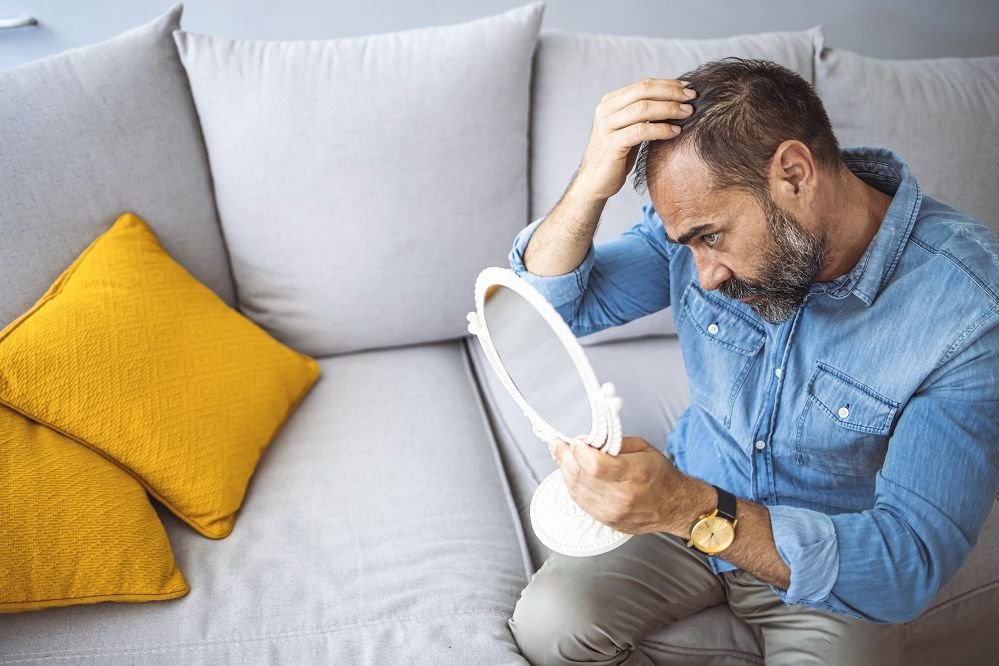Give me a head of hair!
This ‘new’ treatment for hair loss could be a cut above the rest.

Key points
Currently, available hair loss treatments are largely ineffective.
Minoxidil in pill form is more effective than previous treatments.
Regulators have yet to widely approve the treatment, and researchers lack financial motivation.
Pharmacy shelves are full of hair-growth products, often expensive and ineffective.
A new form of an existing treatment is causing excitement among world dermatologists. But don’t hold your breath for it to be readily available in Australia.
The ingredient minoxidil has been used for years for hair loss in sprays, foams and shampoos, to underwhelming degrees of success. Rogaine is the commercial name for the lotion or foam rubbed on the scalp. It was first approved for men in 1988, then women in 1992, and is now generic. Rogaine is known as Regaine in Australia.
What’s different with this ‘new’ treatment is that it is also minoxidil but provided as a low-dose oral tablet.
In the USA, dermatologists are looking to provide access to tablets via “off-label’” prescriptions, which allow patients to access medication that isn’t necessarily approved by American health regulators.
News Ltd reports that in Australia, it’s a lot harder to access minoxidil tablets for these reasons:
- Minoxidil is commonly sold to treat blood pressure. But to treat hair loss, the tablet has to be consumed in low-enough doses so that it doesn’t significantly impact blood pressure.
- Obtaining the tables requires a medical prescription. In Australia, the use of low-dose minoxidil tablets hasn’t been approved by the Therapeutic Goods Administration (TGA).
The New York Times reported the medicine’s use as a hair-growth treatment was discovered by accident decades ago.
“High-dose minoxidil pills were being used to treat high blood pressure, but patients often noticed that the pills prompted hair growth all over their bodies,” the paper said.
The big pharmaceutical company, Johnson and Johnson owns Rogaine.
Recently, international dermatologists have been prescribing low-dose tablets, and their success stories shared at conferences are making the news.
The New York Times quoted Dr Crystal Aguh, a dermatologist at Johns Hopkins School of Medicine who cautioned that if hair loss is too severe, minoxidil will not help. “It will not work, for example, if a man is mostly bald, with a shiny scalp. There is nothing to restore.”
She added that the ideal patient is not completely bald but has lost enough hair that even a casual observer would notice.
Without a rigorous trial leading to USA regulator approval, though, the use of minoxidil pills for hair loss remains off-label. And, dermatologists say, it is likely to remain so. No doubt Australian regulators will also hold back.
The effect is that the treatment will continue to be difficult to find.
Dr Brett King, a dermatologist at Yale School of Medicine says, “Oral minoxidil costs pennies a day.”
“There is no incentive to spend millions of dollars to test it in a clinical trial. That study truly is never, ever going to be done.”
On a more positive note, some treatments include Rogaine and finasteride, a generic medicine used at higher doses in men to treat a benign enlarged prostate. As a hair-loss drug, it is approved for men only. It has also been linked to sexual dysfunction, the New York Times warns.
Then, there is the minoxidil in pill form, if you can access it.
“I’ve seen miracles happen,” Dr Aguh said.
One involved Brandy Gray, 44, who lives in Monkton, Maryland.
“I had been losing my hair over time,” she said. “Then I started having circular patches” with no hair. “They got worse and worse.”
She had seen another dermatologist who gave her shampoos and supplements to no avail. Finally, she said her dermatologist told her, “There is nothing left I can try for you, nothing more I can do.”
She went to Dr Aguh, who gave her low-dose minoxidil. Ten months later, her hair was thick and abundant.
“I can part my hair in different ways,” she said. “I don’t wear wigs anymore.”
For further reading: AFR, News.com.au, The New York Times








